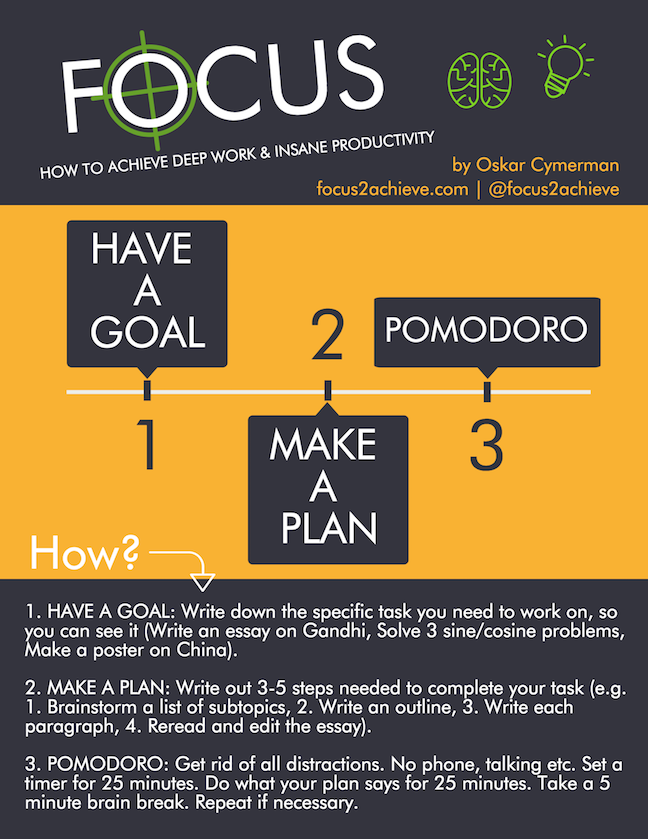Education has become a world of buzzwords, acronyms, initiatives, and fads.
It's not that these things are bad. In fact, many recent initiatives are worthy the resources they require. Project Based Learning (PBL), Flipped Learning, Blended Learning, Design Thinking, Genius Hour, Personalization, EdTech, Gamification, Breakout Edu, Minecraft Edu and many others are on point. They are clear signs of our collective drive toward progress in making learning better for as many students as possible. They make learning more exciting for students disillusioned with today's system of schooling, and those that thrive, dig the new methods as well.
But, when the new methods are put into life, one fact is often forgotten: Most profound learning happens when a student understands how her brain works and she knows the factors that affect brain development. Armed with this understanding, she can make conscious and informed decisions in her in-school and out-of-school life, and how to best apply her brain while learning and studying.
Unfortunately, teacher prep schools don't instruct soon-to-be teachers on how to teach K-12 students about how the human brain acquires, processes, stores, and recalls information. Not really...
They teach Piaget Stages of Development, which is valuable, but don't emphasize that students need to know the connection between learning and the physical processes that take place in the brain while learning. They teach strategies, but often don't break down what occurs in the brain when they're used, or why they are effective, or which ones are more effective than others.
Let's talk frustration. It happens at school and some of it is unavoidable. But guess what? A lot of it is! For example, some students think they can't learn something simply because they see others learning quicker. They do not understand that some students already have neural connections related to what's taught; a head start of sorts. Thinking you're not as smart but still have to get it is frustrating. It seems unfair to the struggling student and he might give up.
Many students do not know the difference between recall and rereading. Studying the wrong way is frustrating. They spend hours studying. Their understanding remains shaky. They keep forgetting. frustration. Frustration. FRUSTRATION. Only if they knew why rereading is so useless and recall so effective! Here's a post and an Infographic on Recall I made.
Let's talk creativity and innovation. Most students (actually people) believe creativity is something you're born with, but that's not the case at all. Understanding that you can become more creative by doing certain things and guiding your actions toward wiring your brain for creativity will lead to increased creativity. Exercising creativity frequently leads to innovation. It's all about the brain; attitudes, actions, ideations.
Let's talk reinvention. Again, it's all about the brain. To be able to reinvent yourself, you need to know how to (1) learn relatively quickly, but deeply, (2) think critically, (3) generate ideas, and (4) solve problems creatively. Predictions for the future are many and vague, but it makes sense that many careers of today will become obsolete, and new ones will emerge.
This means that specializing in only one field is obsolete and focusing on curricula is more and more preposterous. Though I believe subjects should not be taught in isolation from one another, I'm not saying they're all bad. It's just that schools still put emphases on concepts and topics, and not on universal and transferable skills like the ones I mention above. We lack the right focus.
And, while the new methods of learning grow in number and popularity, giving teachers and students more choices, we need to cancel out the hype noise and think how to maximize their potential. We must use the fundamental principles that govern the human brain to decide the effectiveness of these new ways. And, each decision teachers and administrators make must be driven by this question: How can this tool or strategy be used best to optimize brain development? Otherwise it's just a fad and a buzzword.
Because "Because it's cool" just isn't cool.
We need to help our students become decision makers capable of choosing the most effective way for them to learn. We've tried and failed at it using bad approaches such as Learning Styles Assessments. The learning styles myth has been debunked in the world of higher education more than 5 years ago, yet there are schools that continue wasting resources trying to figure out if their students are Visual, or Auditory, or Reader/Writer, or Tactile types. (By the way, we all learn best using multiple senses.)
In the last decade, using brain scanning technology, we have learned things about the brain that were previously obscured. We can see the formation and thickening of neural connections and the firing of synapses when the brain receives, processes, and stores information. We know what works and what wastes time. We have the ability to choose the most effective learning strategies and to optimize new and old methods of acquiring information to maximize learning. We know, but rarely use, because we're unaware.
To be successful now and in the future, students must know how to maximize their brain powers and how to learn effectively. And learning is something that lasts. So is success. So if you help students succeed in learning, they will learn how to succeed.
You can read all about this in my 2 Crush School books (a series on how to apply brain based learning in school and life) available on Amazon. Jon Harper, a host of the podcast My Bad with over 60,000 downloads per month, said: "Oskar has a way of making the complex seem so simple." I hope you enjoy my books as well and find a way to use them to help your students.









